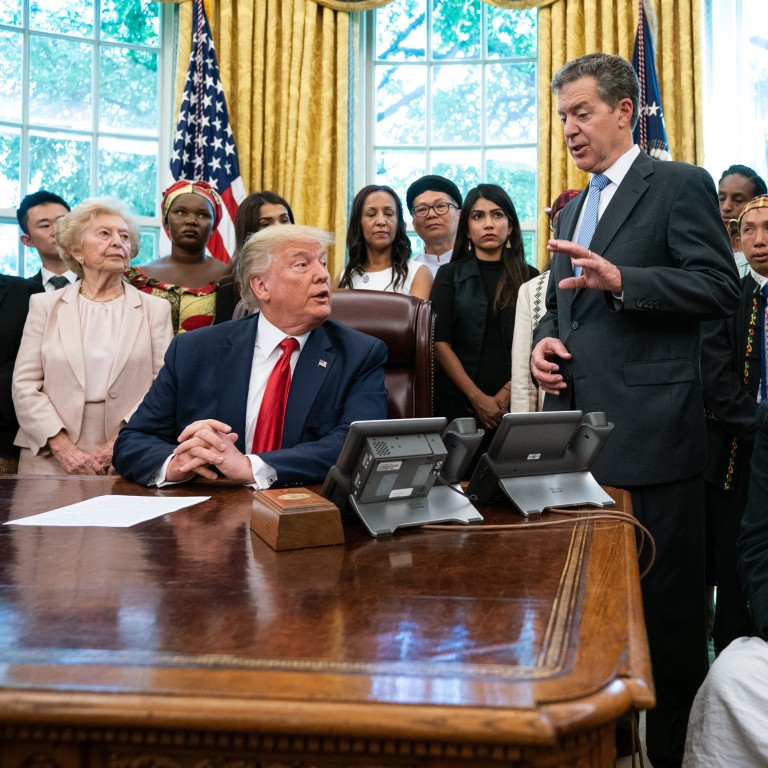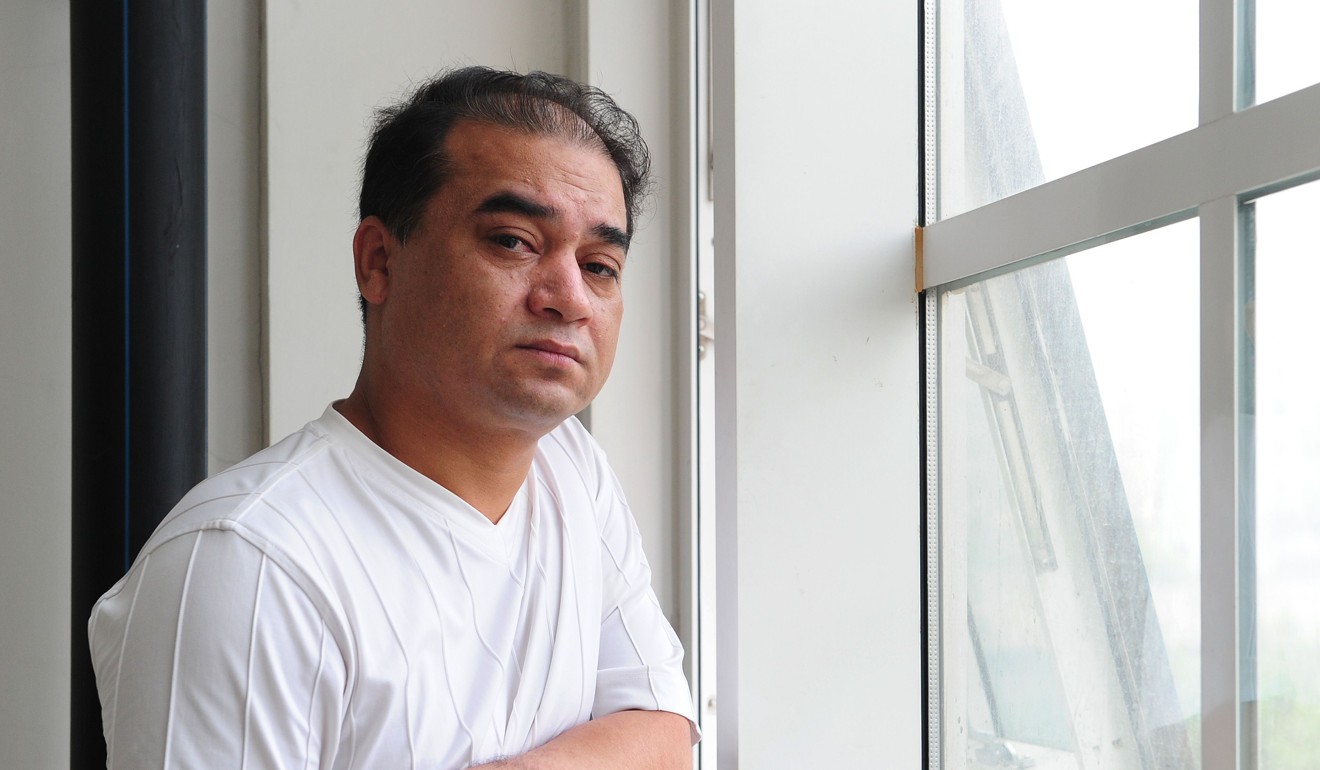
Donald Trump hears ‘tough’ details of China’s Xinjiang camps as he meets detained Uygur scholar Ilham Tohti’s daughter
- US president has first public meeting with anyone from China’s Uygur community, and makes first remarks on their internment
- Action needed on China, he is told as he also meets Falun Gong practitioner and Tibetan Buddhist at gathering of victims of religious persecution
United States President Donald Trump met victims of religious persecution from around the world on Wednesday, including one Uygur woman and three other people from China.
Upwards of 1 million Uygurs and other Turkic Muslim groups are reported to be detained in high-security camps in Xinjiang and subjected to political indoctrination.
Tohti was seized at an airport in Beijing in 2013 while attempting to travel to the US with his daughter for a one-year residency at Indiana University, and later sentenced to life in prison for crimes of inciting separatism.
Trump appeared not to know in detail about the internment camps in Xinjiang – which are believed to have begun in early 2017 – asking Ilham where in China the camps were located.

Zhang urged Trump to take action against China’s ruling Communist Party. “Just words, it doesn’t work,” she said, to which Trump nodded.
The White House meeting came as the US administration hosted its second Ministerial to Advance Religious Freedom, a three-day gathering in Washington of religious leaders, government officials and victims of faith-based persecution from around the world.
Samuel Brownback, Trump’s envoy for religious freedom at the State Department, the agency that hosts the ministerial, said during Wednesday’s meeting that the US was leading the way when it came to defending people of faith around the world.
“Many other allies are coming along,” he said, “but we’re the main country to stand up and fight for their religious freedom.”
The Chinese government said the support of the 37 nations, which include a number of Muslim majority states such as Saudi Arabia and Pakistan, was “a powerful response to the groundless accusations made against China by a small number of Western countries”.
Senior US officials, including Secretary of State Mike Pompeo and Vice-President Mike Pence, have verbally castigated Beijing over its policies in Xinjiang.
“Americans will never tire in our efforts to defend and promote religious freedom,” said Trump at Wednesday’s Oval Office meeting. “I don’t think any president’s taken it as seriously as me.”
Also at the gathering was a survivor of March’s mass shooting at a mosque in Christchurch, New Zealand, and 2018 Nobel Peace Prize winner Nadia Murad, a member of the Iraqi Yazidi minority who survived months of captivity by Islamic State in 2014.
“Your families are very proud, and our country is very proud, and your countries are very proud, for those of you who aren’t from the United States,” Trump said to those in attendance, the majority of whom suffered persecution at the hands of their own countries’ governments.

